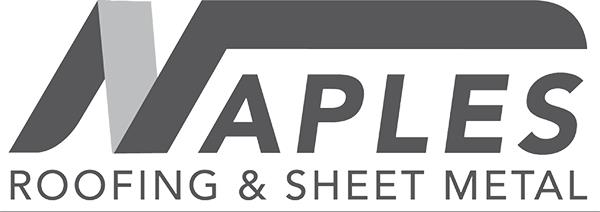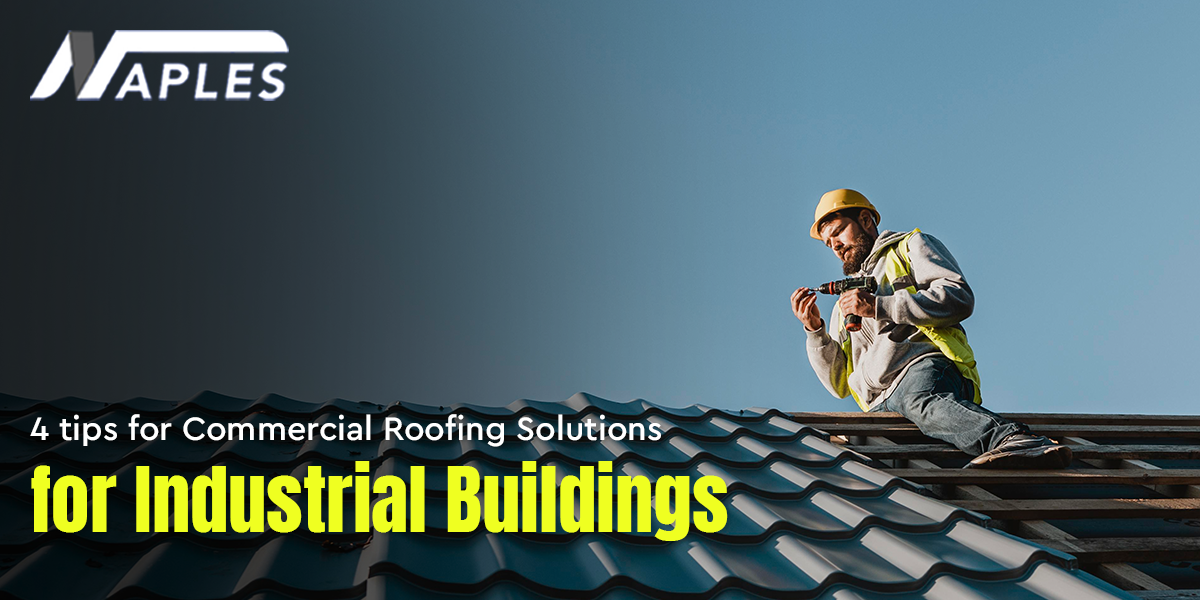4 Tips for Commercial Roofing Solutions for Industrial Buildings
In industrial buildings, the roof is more than just a cover – it’s a key player in ensuring the building lasts, stays energy-efficient and keeps everything inside safe. Investing in the right industrial roofing solutions, along with a well-chosen, durable roof that’s properly maintained, is vital for the day-to-day operation of any industrial facility. It not only protects the structure but also helps save on energy costs. Prevents costly damage to the valuable assets within.
The major points about commercial roofing solutions:
Here are four key tips for selecting and maintaining commercial roofing solutions for industrial buildings:
1. Choose the Right Roofing Material for Durability
Industrial buildings often face harsh conditions, including extreme weather, heavy machinery, and chemicals that can damage roofing materials. Choosing the right roofing material is critical to ensure longevity and performance. Common materials for commercial and industrial roofs include:
- TPO (Thermoplastic Olefin): Known for its durability, energy efficiency, and UV resistance. TPO is an ideal option for industrial buildings that require a long-lasting roof with excellent thermal properties.
- EPDM (Ethylene Propylene Diene Monomer): This synthetic rubber roofing material is resistant to weather extremes and provides excellent protection against water leaks and ozone damage.
- PVC (Polyvinyl Chloride): Durable and resistant to chemicals, UV light, and water. PVC is an excellent option for industrial buildings with exposure to harsh environments.
- Metal Roofing: Steel or aluminum roofing is commonly used for industrial buildings due to its strength, longevity, and resistance to fire and extreme weather.
When selecting a roofing material, consider the environmental conditions of your area. The real required of your facility, and your budget.
2. Prioritize Energy Efficiency in Commercial Roofing Solutions
An industrial building’s roof can significantly affect its energy consumption. A poorly insulated or improperly ventilated roof can lead to heat loss during winter and excessive heat gain during summer, resulting in higher energy costs. To improve energy efficiency:
- Use reflective roofing: Elements like TPO and PVC reflect sunlight, redeem heat absorption and lower cooling costs in the warmer months.
- Insulate the roof: Proper insulation prevents energy loss and maintains consistent temperatures inside the building, reducing the load on HVAC systems.
- Consider green roofs: Installing a green or vegetative roof can help with insulation, and stormwater management, and even provide aesthetic and environmental benefits.
Investing in an energy-efficient roofing solution will not only reduce operational costs but also contribute to your company’s sustainability goals.
3.Invest in Regular Roof Inspections and Maintenance
To increase the lifespan of your commercial roof, preventive maintenance and routine roof inspections are essential. Over time, weather, wear and tear, and environmental factors can cause roofing materials to degrade. Regular inspections will help identify minor issues before they turn into expensive repairs. Some tips for maintaining your industrial roof include:
- Professional inspections: Hire a qualified roofing contractor to inspect your roof at least twice a year and after severe weather events.
- Address leaks promptly: Leaks, even small ones, can lead to significant structural and interior damage if not addressed immediately.
- Roof cleaning: Remove debris, moss, and algae from your roof to prevent damage and improve the overall lifespan of the roofing material.
By committing to regular maintenance, you can avoid costly repairs. Moreover, improve the performance of your roof, and prolongs its service life.
4. Plan for Future Expansion or Modifications
commercial roofing for industrial buildings
Industrial facilities often require flexibility to accommodate future growth, which may include modifications to the building’s size, structure, or function. Moreover, if you want a modification of your commercial roofing for industrial buildings you can hire a professional roofer for that. When designing or replacing a commercial roof, it’s important to plan for potential changes that may arise in the future:
- Roof load capacity: Ensure the roof structure can support the weight of any future additions, such as HVAC units, solar panels, or other equipment.
- Scalable roofing systems: Choose roofing systems that can be easily modified or extended in the future to meet changing needs. Metal and modular roofing systems, for example, often allow for easy expansion.
- Sustainability considerations: As sustainability becomes more important, consider incorporating features like solar panels or green roofing systems that can help reduce energy consumption and environmental impact.
Planning ahead will help ensure that your roof can meet future needs without requiring costly or disruptive renovations.
Conclusion:
A durable, energy-efficient, and well-maintained roof is essential to the success of any industrial building. By choosing the right roofing material, ensuring proper drainage, prioritizing energy efficiency, investing in regular maintenance, and planning for future changes. You can significantly extend the lifespan of your commercial roof and protect the valuable assets inside your facility. For expert guidance and solutions, Naples Commercial Roofing Services can help you make the best decisions for your industrial building’s roof.
Your property deserves the best—choose Naples Roofing for quality that lasts. With years of experience and a commitment to excellence. They provide roofing services that combine durability, style, and peace of mind. For your commercial roofing solutions you can visit the website and make a schedule call.



